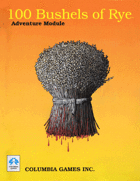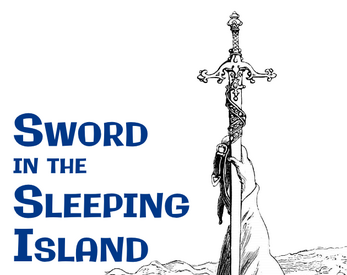If you have ever thought about making a class that requires a whole new spell list then it is worth considering how the existing ones work. With the release of the Necromancer play test material we now have three arcane spell lists to compare. So lets dig in and see what conclusions we can draw from three data points.
The Very Basics
Arcane magic user classes get access to a total of 72 spells per class. This breaks down to 12 spells over 6 levels. That means if you want to make a new arcane spell caster with a unique spell list they need access to 72 spells but how many of those are repeats of existing material? Turns out not necessarily a lot.
The illusionist gets 11 spells that are on the magic user spell list while the necromancer gets 10 spells that are on the magic user spell list. Common duplications are Read magic, detect magic and dispel magic. Read magic is given at level 1 as it is for the magic user however both detect magic and dispel magic are given to the specialist mages a level later, 2nd and 4th level respectively. Worth noting that instead of detect magic at first level the illusionist gets detect illusion while the necromancer gets detect undead.
So the first thing you need to keep in mind when creating the spell list for a new arcane class is you actually only need at most 69 new spells and you can lower this number by taking appropriate spells from the magic user list though you probably want to keep these further spells less than 10.
One difference between the illusionist and the necromancer is that all other spells taken from the magic user list that the necromancer uses are given at the same level as they are for the magic user, with the illusionist the spells hallucinatory terrain and project image are given at a lower level. For the magic user hallucinatory terrain is a 4th level spell and project image a 6th level spell while for the illusionist they are 3rd and 5th level spells respectively. This lines up with the AD&D PHB spell lists for the magic user and illusionist, I am not sure where the inspiration for the necromancer comes from as it does not match up with the dragon magazine death master of the period when it comes to spell lists.
Spelling It Out
We all love a good damage spell, or at least I do anyway. The fact remains that most spells in the spell lists in OSE are not really damage spells. In reviewing the different spell lists I broke the spells down into four types of spell: control, damage, defensive and utility. Now these classifications can get a bit muddied when it comes to spells like wall of fire/ice which is both a control and a damage spell so you need to the following with a pinch of subjective salt.
Here is the break down by level of the spell types for the different classes.
In total each class gets the following types of spells:
Magic user: 17 control spells, 9 damage spells, 9 defensive spells, 37 utility spells
Illusionist: 25 control spells, 6 damage spells, 12 defensive spells, 29 utility spells
Necromancer: 12 control spells, 18 damage spells, 9 defensive spells, 32 utility spells.
These are only rough numbers due to the grey area issues mentioned earlier. The necromancer comes out with so many damage spells likely because I counted spells that summon as damage spells as the creatures summoned usually are the damage dealing type.
Depending on the type of class you are making I would use the above numbers as upper and lower bounds for the types of spells you should have, for example between 9 and 12 defensive spells on the spell list is something you should aim for. Nine defensive spells seems to be the "standard" with the illusionist being a bit more of a defensive class.
Levelling It Out
After breaking down by class it seems the next important thing to do is look at the variation in types of spells by levels. Are some levels more focused at a specific type of spell than others?
Level One: Comparing the different lists it looks as though half your level one spells should be utility spells. How the remaining spells splits depends on your class, the necromancer leans towards damage, the illusionist to control and the magic user splits it 3, 2, 1 in favour of control, defence and damage.
Level Two: Damage spells are nearly non-existent at level 2, only the necromancer gets a damage spell in the form of Choke. The illusionist has an even split between the remaining types while the magic user and necromancer lean heavily on utility spells at this level.
Level Three: This level half the spells are utility spells for the magic user and illusionist while the necromancer only has two utility spells, instead leaning to a fairly even split over the other types. The illusionist favours both control and defensive spells while the magic user again goes for a 3,2,1 split this time favouring defensive spells. At this level all classes have 3 defensive spells which is something to keep in mind.
Level Four: This is a murky level, the magic user gets 7 utility spells and 5 control spells however some of those control spells can do damage. The necromancer goes 2/3 utility spells while the illusionist gets a fairly even split and a return to damage spells.
Level Five: For all classes you get roughly half your spells as utility spells at this level. It is a big damage level for magic users and necromancers with 3 and 4 spells respectively. Defensive spells are only given at this level for the illusionist.
Level Six: A slight tone back for utility spells at this level. The necromancer splits evenly between damage and defensive spells while the illusionist favours control and the magic user damage.
It is difficult to draw hard and fast rules from the data, there are some guidelines you should be able to tease out at least.
Balancing It Out
We can run the maths on some spell types for comparison, some spell types are more illusive than others when it comes to balance however. Utility spells are the worst offenders for issues on balance. How do you really gauge the power of locate object (2nd level magic user) and glamour (1st level illusionist)?
Looking at damage spells things get a bit iffy when we start looking at the summon spells. Just looking at 1st level spells the necromancer chill touch does 1d4 plus a point of strength damage while command dead is going to bring you 2d6 creatures that do 1d6 damage per round on a hit, for the illusionist you do 1d4 damage with chromatic orb and attacks against the target get a +2 to bonus while for the magic user we have the old magic missile with 1d6+1 damage. Seeing how the balance of chill touch, chromatic orb and magic missile work is fairly easy to tease out, when you add the summons though it gets a bit confusing.
I am not going to get into the full granular analysis here (because who has time for that right?) but you get the idea. Once you have designed the broad strokes of your spell list you have to go on a level by level and case by case basis to figure out how to balance the actual effects of new spells you want to include.
Other Data Points?
Now there are some other data points we could consider in our analysis such as the Vivimancer and Elementalist spell casters Gavin Norman previously released for Labyrinth Lord. The problem with these is they do not adhere to the later settled upon spell list sizes for OSE meaning some levels have too many spells and others too few for direct comparison. For balance comparison I expect you can use these, and I may well do so in the future, you just can not use these classes for spell list construction comparison in a one to one fashion.
Then you get into the other wizardly sub types that appeared scatted across Dragon magazine and various other TSR products in the AD&D era as well as the odd option in White Dwarf magazine. Again these will suffer from non standard spell list sizes and some wonky balance as they are often suggested as "NPC" classes whoever they provide decent inspiration.
A Kind of Magic?
Final conclusions, you are probably going to need around 60 new spells for a new arcane caster class and it is going to take a lot of work balancing out the effects of the spells, not something you should attempt lightly. Hopefully this dive into existing spell lists gives you an idea of where to start at least.
Will I be attempting my own caster classes? It is tempting but rather a lot of work so don't hold your breath. Divine casters have less spells in their spell lists, may be I should start there instead rendering all this waffle useless!




















